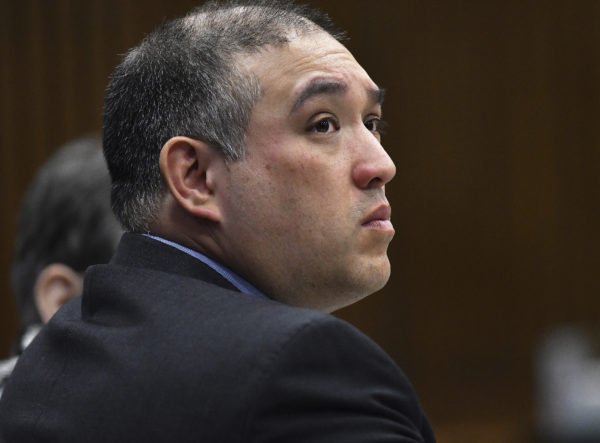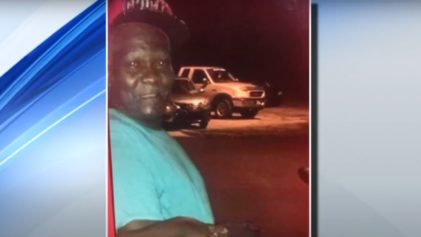DETROIT (AP) — A prosecutor urged jurors on Tuesday to convict a former Michigan State Police trooper of second-degree murder in the death of a Detroit teen, saying there wasn’t a “lick of common sense” in firing a Taser at a boy riding an all-terrain vehicle.
Damon Grimes, 15, crashed the ATV and died on a Detroit street in 2017. Mark Bessner is on trial for a second time after the first trial last fall ended without a unanimous verdict.

Assistant prosecutor Matthew Penney said Grimes was joy-riding in a residential neighborhood, a minor offense that didn’t deserve such a tragic result. He said being shot with the Taser was like getting hit with an “electric baseball bat.”
“That’s not a reasonable use of force,” Penney said in his closing argument. “Not if you have a lick of common sense.”
Jurors deliberated for about an hour Tuesday afternoon before going home. The jury will return Wednesday.
Bessner’s attorneys tried to get his former partner, Trooper Ethan Berger, to testify, but Berger invoked his constitutional right to remain silent. Berger was driving the patrol car when Bessner fired the Taser from the passenger seat.
Bessner declined to testify in his own defense. It was a major shift in strategy: He had offered an emotional narrative at the first trial, telling jurors that he believed Grimes had a gun in his waistband . He said he was “shocked” to learn the boy didn’t have a weapon.
Defense lawyer Richard Convertino said Bessner was assigned to a high-crime area in Detroit where ATV riders were commonly caught with guns.
Bessner’s use of the Taser was “perfectly reasonable” if he felt his life was at risk, Convertino said.
“It was a tense, rapidly evolving, uncertain — uncertain — environment,” he told jurors. “Split second. Not a second. A split second.”
Outside court, Convertino said Bessner didn’t testify because he didn’t believe the prosecutor had met the burden of proof.
“It’s a risk assessment. If there’s no need to present additional evidence in whatever form, you just don’t do it,” Convertino told The Associated Press.
By not sitting in the witness chair, Bessner avoided questions from the prosecutor about an audio recording of him wishing to use a Taser in a different ATV incident. It was a new piece of evidence discovered after the first trial.


